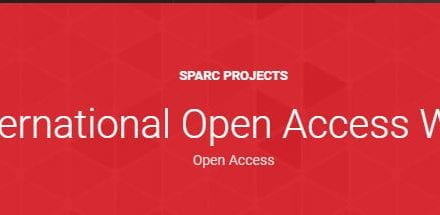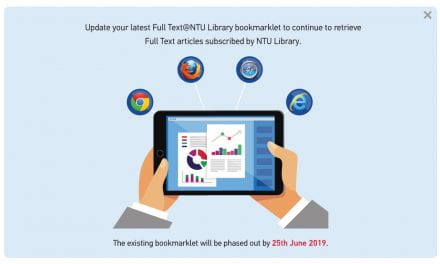“Open access (OA) literature is digital, online, free of charge, and free of most copyright and licensing restrictions” (Peter Suber, 2012). With effect from 8 Aug 2011, under NTU Open Access Policy, all NTU staff and students must deposit their final peer-reviewed manuscript of journal articles and conference papers to the digital repository of NTU (DR-NTU), upon acceptance of their publications. This is so that the publications can be made available, whenever possible, for global access through the Internet. All PhD and Masters degree (by research only) students are required to submit the complete full-text digital version of their theses to the Library via DR-NTU.
NTU Library provides our staff and students with various services to facilitate NTU community’s compliance with the NTU Open Access Policy.
DR-NTU:
There are two ways that you can publish your work for open access – Gold Open Access and Green Open Access. If you publish using the Gold Open Access model, you will most likely have to pay hefty article processing charges (APCs). Most NTU researchers who choose this model allocate budget from research grant to pay for the APC. Be cautious about predatory publishers if you choose this model.
If you don’t have budget for APC and still need to make your paper open access, you can publish with the subscription-based journals that you regularly do. Depending on the publishers’ policy, deposit your final peer-reviewed manuscript (also known as accepted version or post-print version) in DR-NTU for open access without having to pay for APC. Some publishers may require you to lock up the content for a period of time, which needs an embargo setting in DR-NTU. Please check the publisher’s self-archiving policies by searching Sherpa/RoMeo website.
The NTU Research Data Policy requires final research data to be made available in DR-NTU (Data) and/or an external open access data repository. You can also deposit your data with DR-NTU (Data) so that your research data can be shared and re-used.
DOI Minting:
DOIs are permanent unique identifiers assigned to publications, data, and other scholarly products. As part of the scholarly record, DOIs are indexed permanently and remain available in perpetuity. DOIs make it easier for researchers’ work to be discovered, cited, and credited to them.
Higher degree theses (PhD and Masters by research) submitted to DR-NTU have been automatically assigned DOIs by the Library to increase their discoverability and visibility. You may contact the Library if you need a DOI for your content.
Open Publishing Services:
If you are starting a new journal or publishing a proceedings for a conference organized in NTU, you may approach us for these relevant services:
• Providing platform to host journal /conferences
• Register identifiers such as ISSN & ISBN
• Register with online directory such as DOAJ
• Consultation on publishing workflow
Optimizing Your Researcher Profiles:
Always keep your researcher profiles updated, consistent and public. When submitting papers to your publishers, do include your ORCiD. If you are puzzled by which profile you should maintain – Google Scholar, Scopus, ResearcherID or ORCID, – please contact us at spi@ntu.edu.sg







